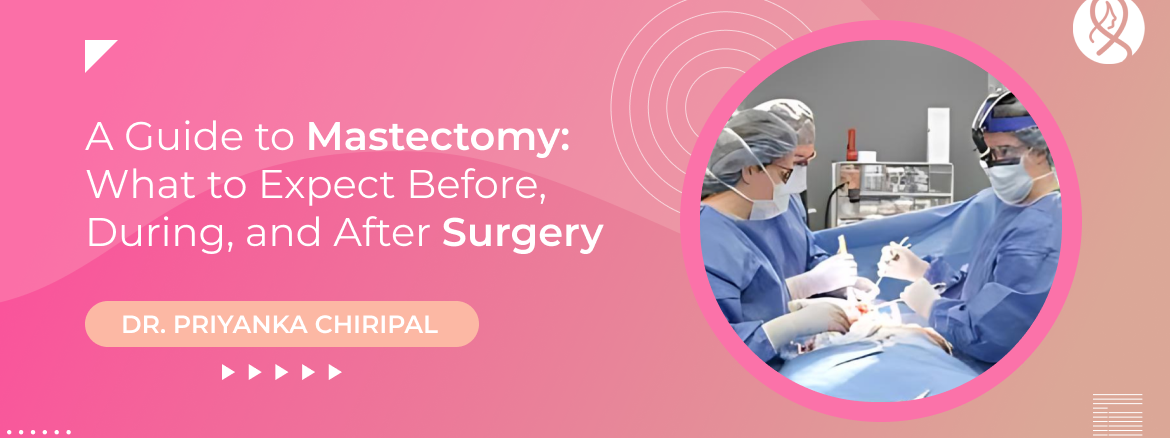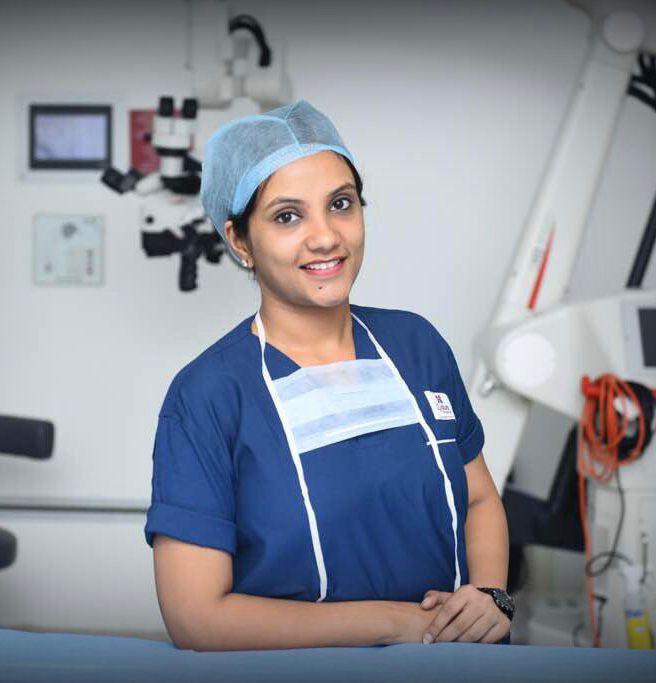Mastectomy is a significant surgical procedure commonly used to cure or prevent breast cancer by removing one or both breasts.
This blog covers the mastectomy fundamentals, a breast cancer treatment, and addresses its common concerns. You will be subjected to various medical procedures and care regimens during and after surgery.
This comprehensive guide attempts to provide insights into each stage of the mastectomy procedure, ensuring that you feel supported and prepared throughout.
Before Surgery
Consultation and Decision-Making
The journey starts with an assessment of one’s condition by healthcare practitioners. This may be a breast cancer surgeon, an oncologist, a reconstructive surgeon if a patient needs reconstruction, and possibly a genetic counselor. During these consultations, you can discuss:
- Type of Mastectomy: Some of the recognized types are the total or simple mastectomy, the skin-sparing operation, nipple-sparing mastectomy, and the modified radical mastectomy. The type, stage, location, and choice of the patient are typically taken into consideration while making a decision.
- Reconstruction Options: Breast reconstruction is also possible, and the surgeon will discuss the possibilities which include using implants or autologous tissue reconstruction where tissue from another part of your body is used.
- Risks and Benefits: It is necessary to clarify some important aspects regarding the risks that involve the operation, the advantages, and possible negative outcomes of the surgery.
Preoperative Tests and Preparations
As with any medical procedure that is part of breast cancer treatment, there are several tests that will be carried out before the actual surgery is carried out on you. These may include blood tests, imaging tests like mammography or MRI scans, as well as an EKG. Your physician will provide you with detailed instructions on:
- Medications: There may be specific occasions when you would have to discontinue using drugs like blood thinners prior to the surgery.
- Fasting: Many patients must avoid food and drink for a certain time before undergoing surgery or other procedures.
- Preparing Your Home: Keep home arrangements ready after the surgery as you may not be very mobile during the initial phase.
Emotional and Psychological Preparation
It could have deep emotional implications for a woman, for instance, in a mastectomy. It is advisable to seek advice from friends, family, or support groups. Therapy is also helpful in dealing with emotions and concerns about the surgery and how it will affect your body image and sense of self.
During Surgery
When going for the surgery, you will be administered with general anesthesia, and this will put you to sleep during the process. If you have decided to retain your nipples, the surgeon will try and exercise as much tissue on both your breasts as possible. This involves the area around the nipple, the nipple itself, and the skin that covers it.
Sometimes, even the lymph nodes found in the armpits are also there in that. Also, the surgeon could take out a bit of the muscles that are found just beneath the breast region known as the pectoral muscles.
The surgeon will remove breast tissue during the procedure and place one or two tubes to allow fluid to drain.
At times, the mastectomy and breast reconstruction are performed together. The alternatives that make up breast reconstruction involve the transfer of skin flap for reconstructing the breast from other parts of the body and breast implant surgery.
After Surgery
Immediate Postoperative Care
Once home, follow your doctor’s instructions carefully:
- Wound Care: Keep the incision area clean and dry.
- Medications: Take medications as prescribed by the doctor such as painkillers and antibiotics.
- Rest and Activity: Sleeping is important, but limited movements like taking a walk are recommended so that the blood can flow in the body. Do not engage in any lifting or vigorous exercises or work for some time.
Physical Recovery
Physical recovery varies from person to person but generally includes:
- Healing Time: This usually takes several weeks, but in some severe cases, it could take longer to heal completely. In this stage, redness, inflammation of the skin, and pain such as swelling and slight recurrent bruising can be encountered.
- Physical Therapy: In some cases, your doctor may also suggest that you continue undergoing physical therapy to strengthen and mobilize your muscles; probably the arm and shoulder area.
- Follow-Up Appointments: When discharged, healthy follow-up of your doctors is critical to evaluating improvement and addressing any complication.
Emotional and Psychological Recovery
One needs to accept that people also need to emotionally heal just as well as they need good health to heal the body. Some strategies for the following include:
- Counseling and Support Groups: Seeking out advice from a professional therapist or group can also gain social support and ideas for how to manage stress.
- Body Image and Self-Esteem: This is a usual occurrence even among women who have still not given birth and is natural for any woman to feel this way. Take some time to get used to this new normal and do not hesitate to consult a professional if the need arises.
Long-Term Considerations
Long-term follow-up is crucial for monitoring your health and managing any ongoing issues:
- Surveillance: Regular screenings and check-ups are vital to detect any recurrence or new cancers.
- Lifestyle Changes: Living healthy with no tobacco use, regular exercise, favorable weight, and a diet rich in fruits and vegetables also brings about a cut down on cancer risks.
Conclusion
Mastectomy involves the removal of a woman’s breast tissue and therefore has immense impacts on an individual and therefore should be prepared for and supported properly. It is important that you know the things to anticipate before, during, and after surgery to prepare for it. Never forget that you need to seek help and advice from your doctors, family, friends, and any other organizations to help you heal and accept those changes. Do remember that your attitude towards life influences your recovery, helping you remain strong during your breast cancer treatment journey.



